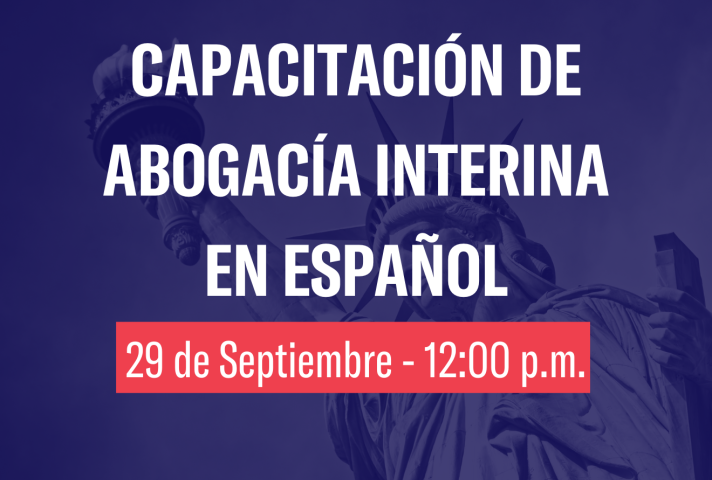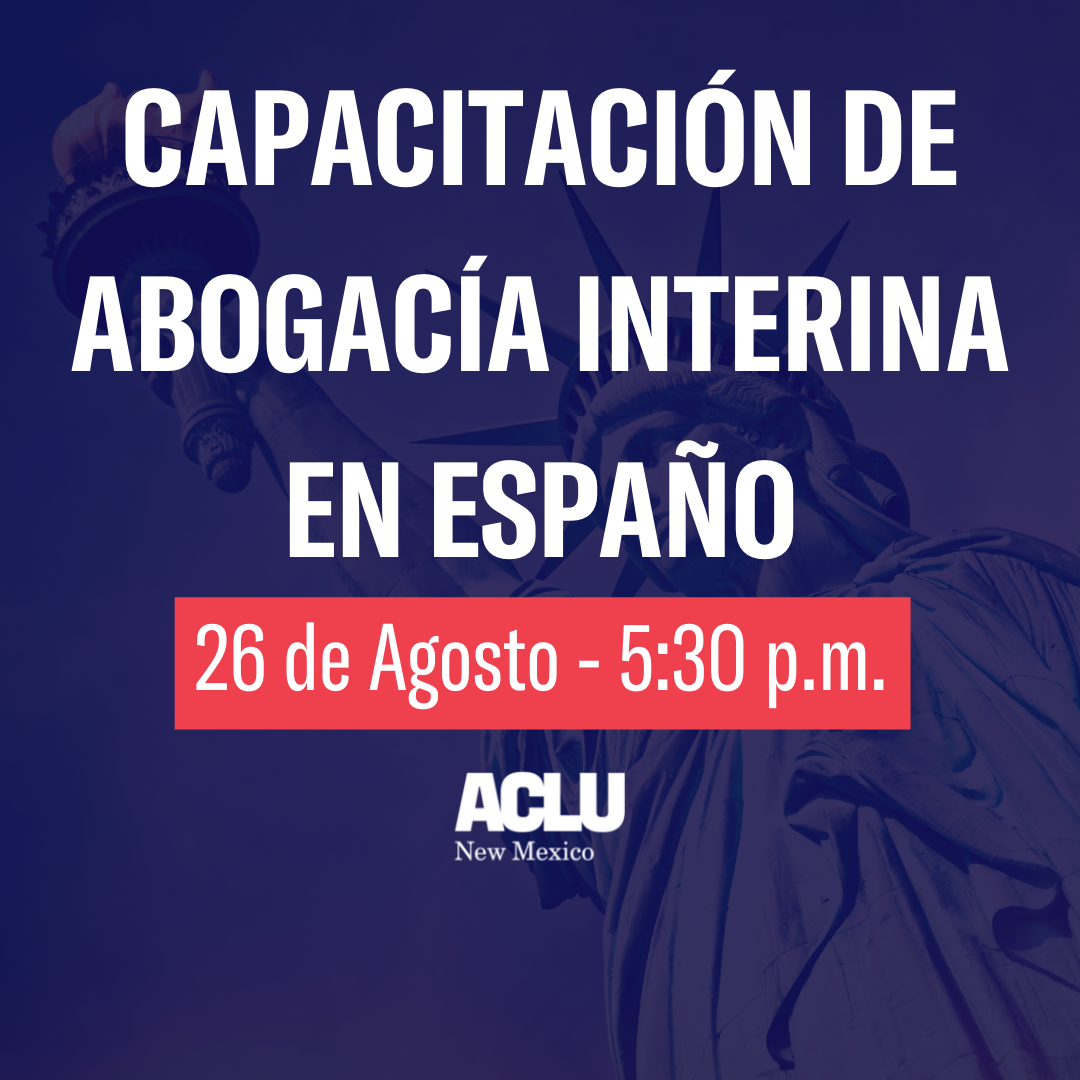Join the ACLU of New Mexico at the upcoming advocacy training via Zoom on August 26, 2021, at 5:30 p.m. During the training, you will learn more about the interim session, how to get involved. We will connect you to the resources you will need as you fight to protect civil liberties in New Mexico.
We will discuss some of the more pressing issues impacting the people of our state. We will go over what you can do to help end mass incarceration, expand and protect immigrant rights, increase police accountability and expand access to reproductive healthcare.
Event Date
Thursday, August 26, 2021 - 5:30pmFeatured image




